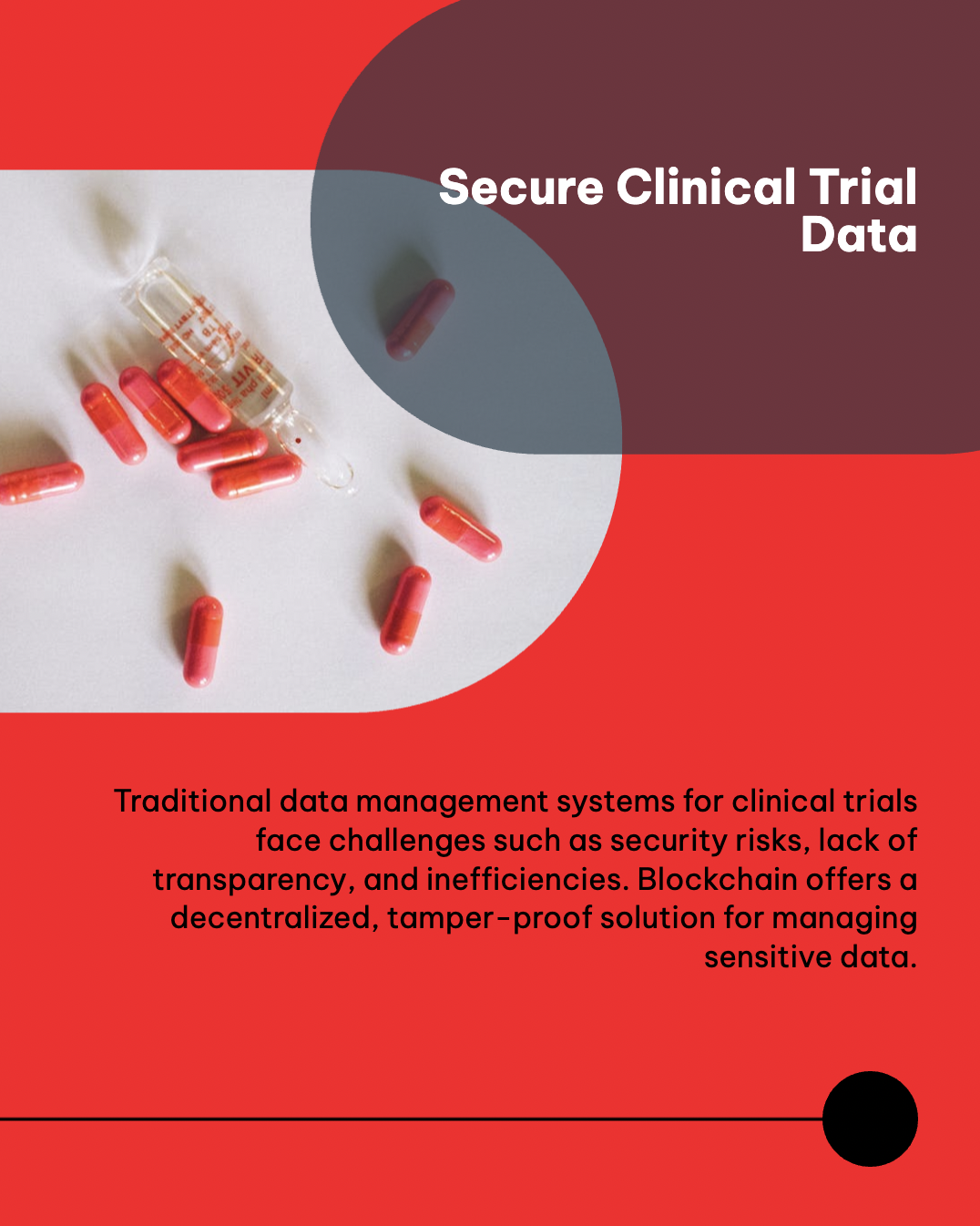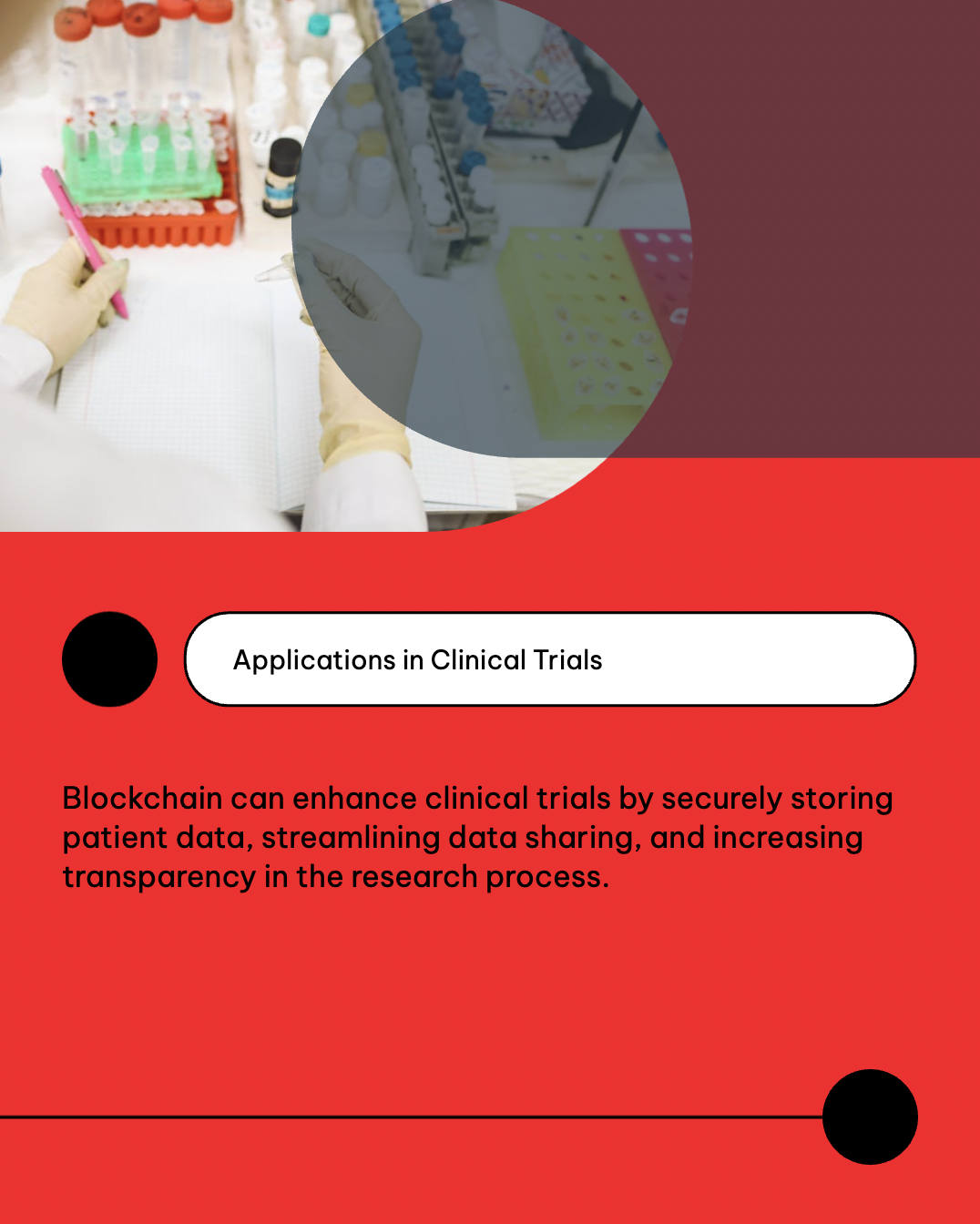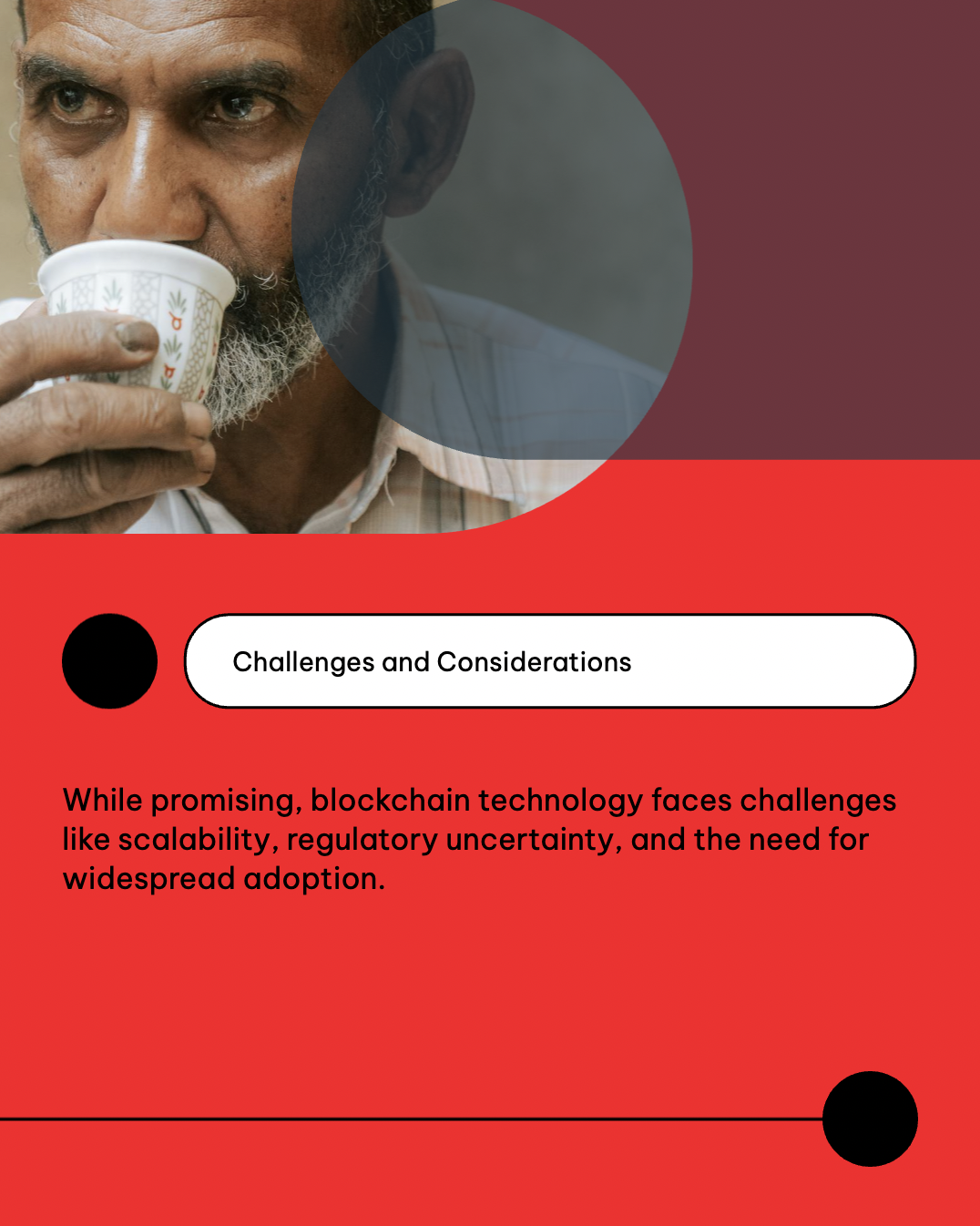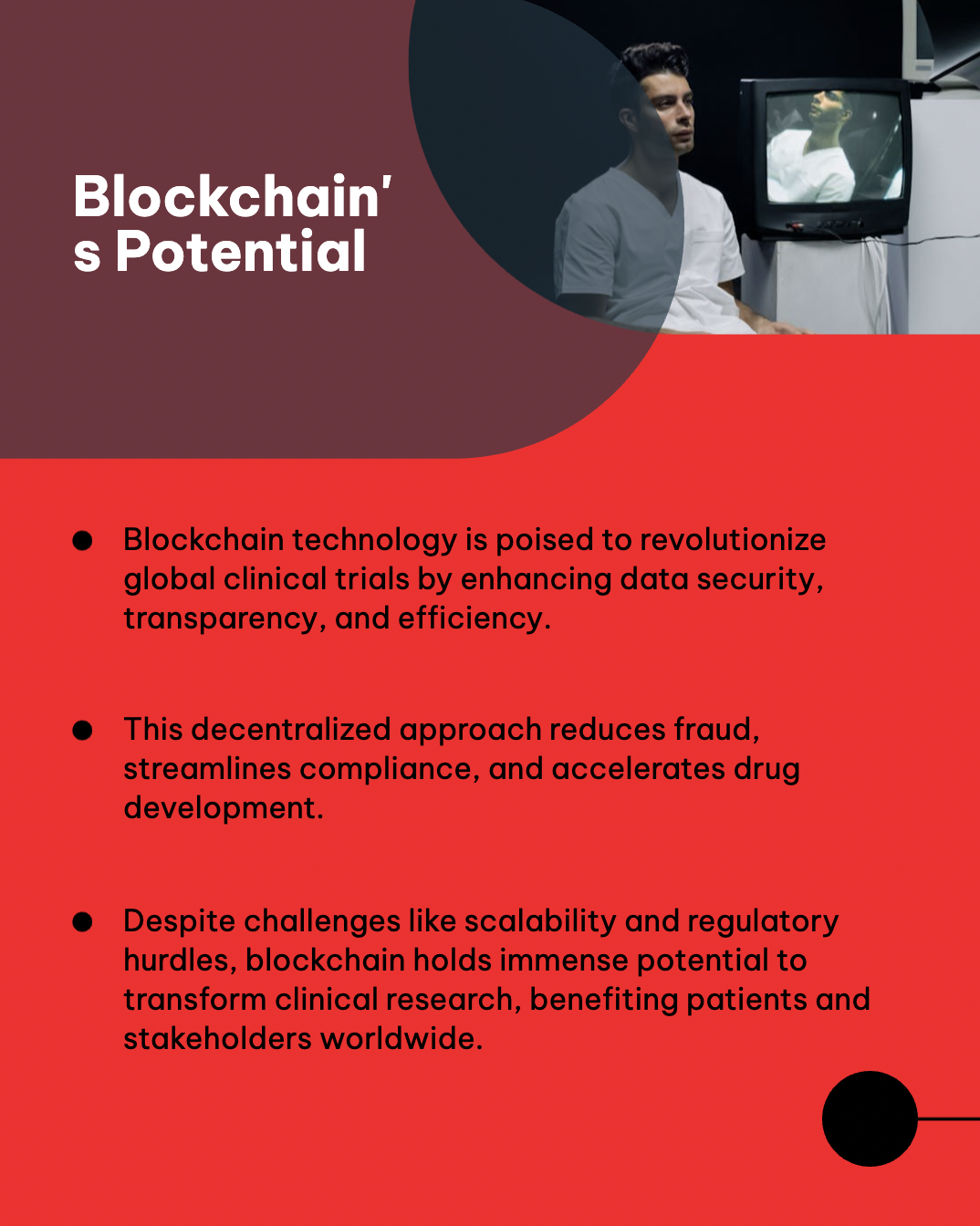LEVERAGING BLOCKCHAIN FOR SECURE DATA MANAGEMENT IN GLOBAL CLINICAL TRIALS
HOME
BLOG
LEVERAGING BLOCKCHAIN FOR SECURE DATA MANAGEMENT IN GLOBAL CLINICAL TRIALS
Traditional data management systems, which rely on centralized databases, often struggle with security vulnerabilities, data silos, and inefficiencies. Blockchain technology presents a groundbreaking solution by offering a decentralized, transparent, and secure approach to managing clinical trial data.

Understanding the Challenges in Clinical Trial Data Management
Clinical trials generate vast amounts of sensitive data that must be securely managed across multiple stakeholders, including pharmaceutical companies, regulatory agencies, researchers, and patients. However, traditional data management systems face several challenges:
Data Security Risks
- Centralized databases are susceptible to cyberattacks, data breaches, and unauthorized access.
- Insider threats and accidental data leaks compromise trial integrity.
Lack of Transparency
- Data manipulation and fraud can occur due to a lack of verifiable records.
- Multiple parties handling data can lead to inconsistencies and errors.
Inefficiencies in Compliance and Audit Trails
- Regulatory bodies require stringent data verification processes, which are often slow and costly.
- Paper-based documentation and fragmented digital records create bottlenecks in approval processes.
Interoperability Issues
- Clinical trials involve multiple systems, platforms, and stakeholders, leading to integration challenges.
- Difficulty in sharing real-time, verifiable data across different jurisdictions.

How Blockchain Can Address These Challenges
Blockchain technology offers a distributed, tamper-proof ledger that records transactions in a transparent and immutable manner. By integrating blockchain into clinical trial data management, the following advantages emerge:
Enhanced Security and Data Integrity
- Decentralization: Data is stored across multiple nodes, reducing the risk of a single point of failure.
- Immutability: Once recorded, data cannot be altered, ensuring integrity and trust.
- Encryption & Smart Contracts: Protect sensitive patient information while automating compliance.
Transparency and Auditability
- Real-time tracking: Every transaction (e.g., data entry, modifications, or approvals) is time-stamped and visible to authorized stakeholders.
- Regulatory audit trails: Authorities can instantly verify data authenticity, reducing fraud risks.
Efficiency in Regulatory Compliance
- Blockchain automates compliance processes through smart contracts—self-executing agreements triggered by predefined conditions.
- Regulators gain real-time access to immutable trial data, accelerating drug approvals.
Interoperability Across Borders
- A universal blockchain ledger enables seamless data sharing among clinical trial sites, research institutions, and regulators globally.
- Standardized protocols improve collaboration between multiple parties.

Key Applications of Blockchain in Clinical Trials
Patient Recruitment & Consent Management
- Smart contracts facilitate automated informed consent, ensuring patient rights and regulatory compliance.
- Blockchain-powered identity verification reduces fraud and simplifies enrollment processes.
Secure Data Collection and Storage
- IoT devices and wearables can directly feed encrypted patient data into a blockchain network.
- Reduces data tampering and unauthorized alterations.
Drug Supply Chain Traceability
- Ensures authenticity of investigational drugs by tracking sourcing, distribution, and delivery in real time.
- Prevents counterfeit drugs from entering clinical trials.
Monitoring and Adverse Event Reporting
- Patients and investigators can securely record and validate adverse events, ensuring real-time safety monitoring.
- Smart contracts automatically alert regulatory bodies upon detecting anomalies.
Regulatory and Ethics Compliance
- Reduces manual intervention by providing regulators with instant access to validated trial data.
- Automates compliance checks, reducing administrative costs.
Case Studies: Real-World Blockchain Adoption in Clinical Trials
IBM & FDA Collaboration
IBM partnered with the U.S. Food and Drug Administration (FDA) to explore blockchain applications in healthcare. The initiative focused on improving data sharing for clinical trials, patient safety, and real-time monitoring.
MedRec: A Decentralized Health Record System
MedRec, developed at MIT, provides a blockchain-based electronic medical record (EMR) system that enables clinical trial participants to control their data securely.
Boehringer Ingelheim & IBM Blockchain Pilot
Boehringer Ingelheim tested blockchain for improving clinical trial workflows by enhancing data integrity and regulatory compliance.

Challenges and Considerations in Implementing Blockchain
Scalability Concerns
- Traditional blockchain networks, like Ethereum, struggle with handling large-scale data transactions in real time.
- Solutions: Layer-2 scaling, private blockchain networks, and hybrid models can address scalability issues.
Regulatory and Legal Uncertainty
- Global clinical trials must comply with varying regulations (e.g., HIPAA, GDPR, FDA, EMA).
- Industry-wide standards are needed for widespread adoption.
Integration with Existing Systems
- Blockchain implementation must align with legacy clinical trial management systems (CTMS) and electronic health records (EHRs).
- Requires API-based integration for seamless data flow.
Data Privacy and Patient Confidentiality
- While blockchain ensures security, storing personally identifiable information (PII) on-chain can be a risk.
- Solution: Use zero-knowledge proofs (ZKP) and off-chain storage for enhanced privacy.
The Future of Blockchain in Clinical Trials
The future of blockchain in clinical trials is promising, with continuous advancements in technology and regulatory support. Some key trends include:
- Adoption of hybrid blockchains to balance security, scalability, and compliance.
- Integration with AI and IoT for real-time monitoring and predictive analytics.
- Increased regulatory acceptance as authorities recognize blockchain’s potential for ensuring trial integrity.
- Development of blockchain consortia—collaborations between pharma companies, regulators, and tech firms.

Key Takeaways
Blockchain technology is poised to revolutionize global clinical trials by enhancing data security, transparency, and efficiency. By leveraging decentralized and tamper-proof ledgers, the pharmaceutical industry can reduce fraud, streamline compliance, and accelerate drug development.
However, challenges such as scalability, regulatory hurdles, and system integration must be addressed for widespread adoption. As blockchain continues to evolve, it holds the potential to transform the future of clinical research, benefiting both patients and stakeholders worldwide.
FAQs
- How does blockchain improve patient trust in clinical trials?
Blockchain ensures data transparency and security, allowing patients to track how their data is used while protecting their personal information.
- Can blockchain reduce the cost of clinical trials?
Yes, by automating compliance, reducing fraud, and improving efficiency, blockchain can significantly lower operational and regulatory costs.
- Is blockchain technology already being used in real clinical trials?
Yes, several pilot projects and partnerships (e.g., IBM, FDA, Boehringer Ingelheim) are testing blockchain for clinical trial data management.
- How does blockchain handle regulatory compliance?
Blockchain provides immutable audit trails and enables real-time access for regulators, simplifying compliance with FDA, EMA, HIPAA, and GDPR regulations.
- What is the biggest barrier to blockchain adoption in clinical trials?
The biggest challenges are scalability, regulatory uncertainty, and integration with existing healthcare IT systems. However, ongoing advancements are addressing these issues.
 21.02.2025
21.02.2025





 21.02.2025
21.02.2025